Rumford Fireplaces Are Hotter Than Ever
http://decor-ideas.org 02/16/2014 23:24 Decor Ideas
If you could build a fireplace that threw more heat into the room but produced fewer pollutants and smoke than usual, you’d do it, right? Enter the Rumford fireplace. It’s old but becoming new again, as more and more people develop an appreciation for this historic fireplace design.
The Rumford’s tall, shallow firebox was developed in the late 18th century by Sir Benjamin Thompson, a physicist who went by the name Count Rumford. The design remained popular until around 1850 and was used by Thomas Jefferson at Monticello.
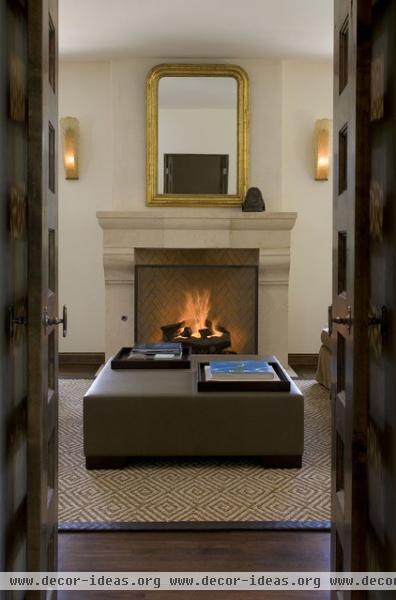
What attracts many people to a Rumford fireplace, besides its aesthetics, is its efficiency in radiating heat into the room and drawing smoke and pollutants out. Rumford fireplaces are taller and shallower than the typical fireplace, and have a narrower chimney opening to increase updraft.
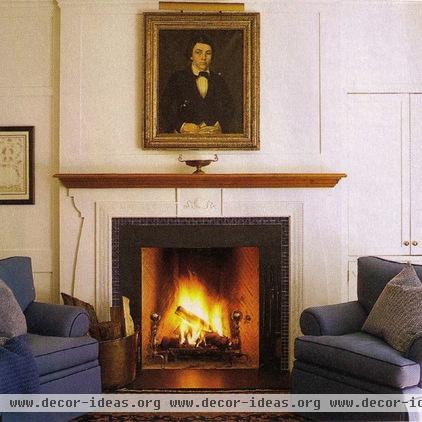
As Jim Buckley of Buckley Rumford Fireplaces in Washington state explains, “The opening should be about as tall as it is wide; the depth of the firebox and fireback should be about the same and about one-third of the fireplace width; the fireback should be plumb and straight; and the throat should be rounded or streamlined to a small, typically 4-inch, throat opening.”
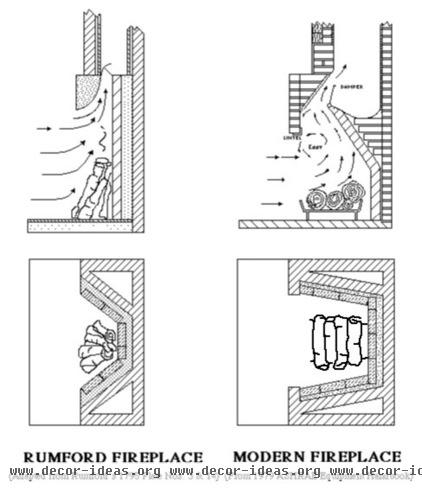
This chart compares a Rumford fireplace (left) to a conventional modern fireplace, in both section and plan views. Notice how the Rumford is shallower, and how air is drawn up the chimney by the Rumford’s rounded throat.
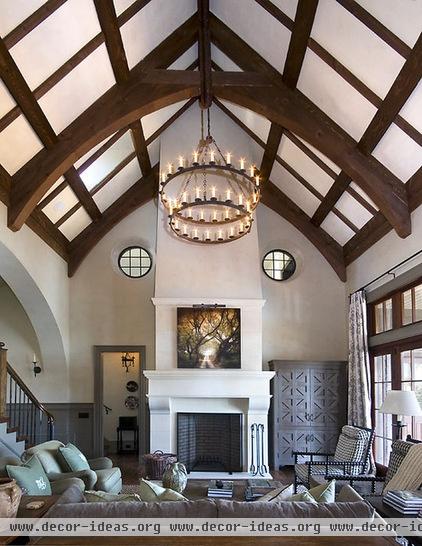
Rumford fireplaces are a perfect choice for great rooms where ceiling heights are high and the scale of the room is grand.
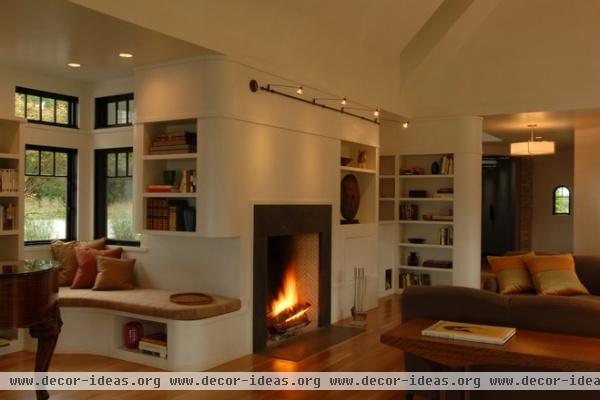
Even in a more contemporary and smaller-scale room, a Rumford fireplace can make a statement.
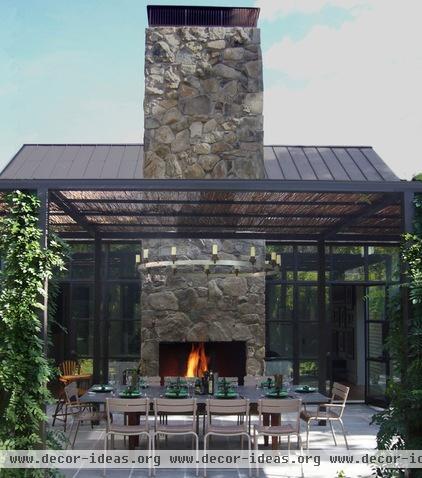
It’s also a great look for an outdoor fireplace.
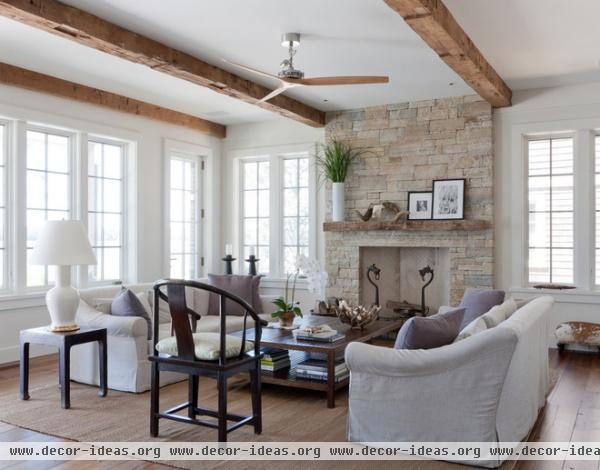
Count Rumford was born in a town outside Boston but worked on his studies of the nature of heat in England (with a side trip to Bavaria). He first thought that light-colored bricks would radiate more heat into the room, the way white surfaces reflect light. People even painted the brick in their fireplace white in hopes of achieving the effect. In time it was proven that the color of the firebox did not make a difference in how much heat is thrown into the room.
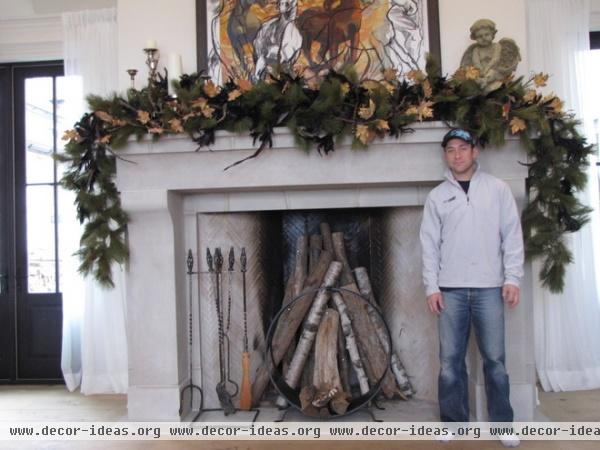
What can make a difference, however, is the way you build your fire in a Rumford fireplace. Buckley (not shown) suggests using seasoned hardwood and placing the logs against the fireback with the wood on its end, tepee-style. This radiates more heat into the room and creates less smoke. Even in a massive Rumford like this one!
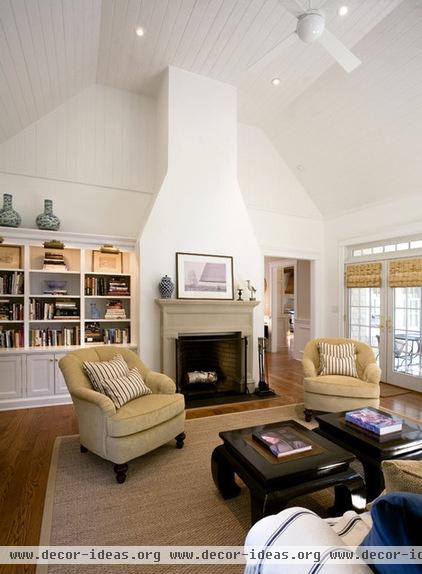
True Rumford fireplaces are constructed from masonry and are built onsite, in contrast to prefab fireplaces. “There is, however, one metal manufactured fireplace with Rumford features — a tall, shallow firebox with a rounded throat — and several other manufactured ones that skirt around the issue, calling their fireplaces ‘Rumford-style’ or some name evocative of Rumford,” Buckley notes.
“Rumfords are easier to build than modern fireplaces,” he adds.
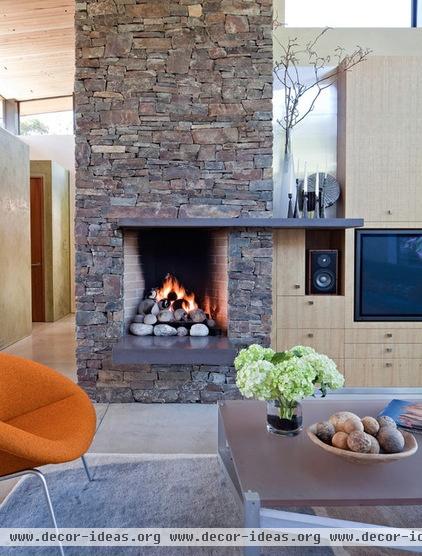
To fit the needs of clients who prefer gas, WA Design in Berkeley, California, modified a wood-burning Rumford-style fireplace by adding a gas log set.
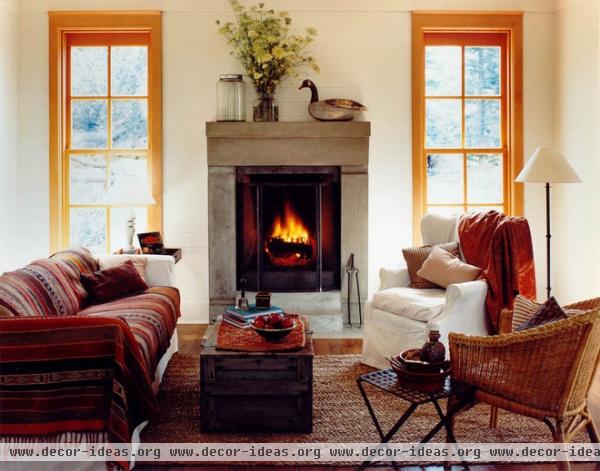
If you’re not building a new home, it’s still possible to get a Rumford fireplace. Conventional masonry fireplaces can be converted into Rumford-style designs. Contact a builder or an architect for more information, or get in touch with a specialist such as Buckley, who can help you “Rumfordize” your fireplace.
More: How to Remodel Your Fireplace
Related Articles Recommended












